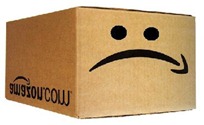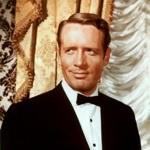
Veteran literary agent Andrew Wylie, who sports the charming sobriquet “The Jackal,” recently gave vent to some spleen against Amazon and developments in the modern book world, in a New Republic interview that has already garnered ire from Nate Hoffelder at The Digital Reader and quite a few others. In an extended Q&A, much of whose tone and intellectual level can be gleaned from its subtitle “How the literary agent still makes millions off highbrow,” Wylie, as Hoffelder delightfully puts it, “shits on readers and writers.”And if you ever idly wondered what jackal shit smells like, now’s your chance to find out.

Wylie’s comment that has had the most airing is a call for publishers to withdraw from Amazon en masse. “I think we’d be fine if publishers just withdrew their product [from Amazon], frankly. If the terms are unsatisfactory, why continue to do business? You think you’re going to lose thirty percent of your business? Well, that’s OK, because you would have a thirty percent higher margin for seventy percent of your business. You have fewer fools reading your books and you get paid more by those who do. What’s wrong with that?” And yes, that “fools” remark got a lot of air time from Hoffelder and others. But it’s also odd that Wylie, who claims to have started his own digital publishing JV with Amazon, Odyssey Editions, to convince the publishing industry “about the fact that digital royalties should be closer to fifty percent than twenty-five,” should now be calling for better terms for publishers instead.
And who would have thought that someone who’d stitched up a partnership with Amazon would take this attitude to his Kindle: “When the Kindle was launched, I bought it right away and discarded it immediately. And I haven’t picked it up again.” Jackals, after all, don’t have much of an appetite for plastic – though they do for mostly Brit authors of a certain age, like Martin Amis and Salman Rushdie, and for the estates of dead people, like Saul Bellow and John Updike. Plenty of nutrition for jackals in carrion, after all.
Even more interesting, and revealing, are the out-takes from the interview that didn’t make it into the final cut. Asked why he refuses to deal with Amazon, Wylie says: “It’s a distribution channel. You hire people to talk to distributors. It’s like groceries. You hire people to receive groceries. What’s that truck that shows up with all the green vegetables? You call out for Chinese, and you call out for Amazon. I don’t deal with it.”
So the real problem is that Amazon is just a lowly distributor? God forbid that Wylie should ever have to exchange words with a grocer, indeed. And anyway, with all his millions, he can hire people to talk to the lower orders, like vegetable delivery men. Sounds to me like this says a lot more about Wylie than about any notion of publishing economics – or literary standards.
He also describes self-publishing as “a bit like self-treating if you have an illness,” and says of Twitter’s chances of producing new writers, “I’d sooner go to a discotheque looking for a writer.” [And I had to get that last one in because I’m off to a discotheque as soon as I finish this article.]
And, Wylie adds, “[Amazon] has walked itself into the position of thinking that it can thrive without the assistance of anyone else. That is megalomania.” Well talk about pot calling kettle black. After all, those impudent upstarts concluded that they could thrive without the assistance of Andrew Wylie. Shame on them.
































